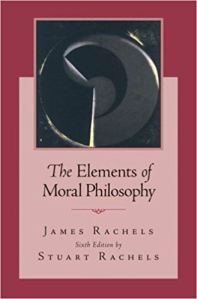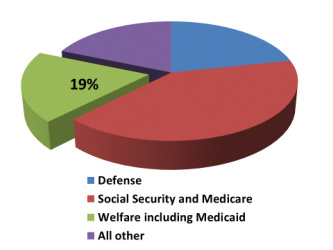 The purpose of this article is to explain different ethical theories and compare and contrast them in a way that’s clear and easy for students to understand. There are three major categories of ethical systems that students typically learn about in philosophy classes: consequentialism, deontology and virtue ethics. I will describe all of them briefly, then describe each one of them in more detail, pointing out their defining features and major variants. I’ll then discuss the nature of Objectivist Ethical Egoism and how it compares and contrasts with each of these types of ethics.
The purpose of this article is to explain different ethical theories and compare and contrast them in a way that’s clear and easy for students to understand. There are three major categories of ethical systems that students typically learn about in philosophy classes: consequentialism, deontology and virtue ethics. I will describe all of them briefly, then describe each one of them in more detail, pointing out their defining features and major variants. I’ll then discuss the nature of Objectivist Ethical Egoism and how it compares and contrasts with each of these types of ethics.
The Ethical Theories: Brief Summary
Consequentialism names a type of ethical theory that judges human practices, like actions or rules, based on their consequences. Human practices that produce good consequences are morally right, while ones that produce bad consequences are morally wrong. Roughly speaking, a consequentialist says that you should do certain things, because those actions produce good consequences. By far the most common historical variant of consequentialism is Classic Utilitarianism. Classic Utilitarianism was advocated by such philosophers as Jeremy Bentham and John Stuart Mill.
Deontology names a type of ethical theory that judges human practices based on whether they are consistent with certain duties that the theory holds as intrinsically moral. Consequences are irrelevant to a fully deontological theory. Deontological theories tend to focus on the motives of actions, and whether a given action was motivated by duty or something else. In many deontological theories, motivation by moral duty itself–rather than other factors, like self-interest–is essential to an action’s being morally right. An advocate of deontology says that you should do certain things, just because those things are the right things to do, (they “align with duty.”) The originator of deontology as a formal theoretical framework was the German philosopher, Immanuel Kant. Later advocates have included W.D. Ross, Robert Nozick and Christine Korsgaard.
Virtue ethics names a type of ethical theory that takes virtues of character, rather than individual actions or rules, as the most fundamental ethical concepts. Moral virtues like honesty, courage, integrity, temperance and generosity are taken to be inherently good first, then actions are evaluated based on whether they express those virtues. That is, do the actions match what a virtuous person would do in those circumstances? Basically, a virtue ethicist says that you should do certain things, because they are examples of good character. Modern virtue ethics takes inspiration from the moral theories of Ancient Greek philosophers like Plato, Aristotle, and the Stoics, (especially Aristotle.) Prominent advocates include Christine Swanton, Rosalind Hursthouse and Alasdair MacIntyre.
Objectivist Ethical Egoism, unlike the other terms here, names one specific theory. It takes human life as the abstract or general standard of moral evaluation. Roughly speaking, that which promotes human life is the good, that which damages or destroys it is the bad. Because Objectivism, the whole philosophy from which this ethics springs, views human life as fundamentally individual–needing to be lived, maintained and enhanced by each individual through his own action–Objectivist Ethical Egoism (OEE) takes each individual’s own life as his own effective standard of value. That which promotes the individual’s own life overall is the good for him, that which damages or destroys his own life is the bad for him.
But OEE does not simply say that actions that end up promoting your life are moral, and actions that end up damaging it are immoral. Objectivism holds that the fundamental job of morality is to guide human choices in the context in which they are made. Objectivism accepts the obvious truth that humans are not omniscient, and so cannot predict all the exact consequences of their actions in advance. It says that the way humans gain general or conditional knowledge–knowledge that can be applied to predict future consequences–is by forming rational principles from empirical observation and experience. In the field of morality, this means deriving rational moral principles from experience. These principles are general statements of fact that are then applied to particular situations to determine a proper course of action. Thus, OEE says that a chosen action is moral, if and only if it represents a proper application of a life-promoting moral principle to the acting individual’s current circumstances.
Among the principles that OEE holds as true are the idea that the rational self-interests of individuals do not conflict, and that initiating force against others (murder, slavery, theft, etc.) is destructive not only to the victims’ lives, but also to the perpetrator’s.
Basically, Objectivist Ethical Egoism says that you should do certain things, because those things actually support and/or enrich your own life. OEE is Ayn Rand’s highly distinctive theory that is widely misinterpreted by academic philosophers and the general public. It has been advocated and explained by such philosophers as Leonard Peikoff, Tara Smith, Allan Gotthelf and Gregory Salmieri. I will discuss OEE’s relationship with the three ethical categories, and whether it can be considered a member of any of them, when I discuss it in more detail later in this essay.
Continue reading →
 Many college philosophy classes today discuss ethical egoism. Many take as their main source the work of James and Stuart Rachels, in their book, The Elements of Moral Philosophy. The main philosopher referenced in the Rachels’ discussion of ethical egoism in Elements is Ayn Rand. But their account of Ayn Rand’s Objectivist ethical theory and their arguments against it are problematic. Their account of her theory is not entirely accurate, and their arguments against it miss important considerations.
Many college philosophy classes today discuss ethical egoism. Many take as their main source the work of James and Stuart Rachels, in their book, The Elements of Moral Philosophy. The main philosopher referenced in the Rachels’ discussion of ethical egoism in Elements is Ayn Rand. But their account of Ayn Rand’s Objectivist ethical theory and their arguments against it are problematic. Their account of her theory is not entirely accurate, and their arguments against it miss important considerations.

 The purpose of this article is to explain different ethical theories and compare and contrast them in a way that’s clear and easy for students to understand. There are three major categories of ethical systems that students typically learn about in philosophy classes: consequentialism, deontology and virtue ethics. I will describe all of them briefly, then describe each one of them in more detail, pointing out their defining features and major variants. I’ll then discuss the nature of Objectivist Ethical Egoism and how it compares and contrasts with each of these types of ethics.
The purpose of this article is to explain different ethical theories and compare and contrast them in a way that’s clear and easy for students to understand. There are three major categories of ethical systems that students typically learn about in philosophy classes: consequentialism, deontology and virtue ethics. I will describe all of them briefly, then describe each one of them in more detail, pointing out their defining features and major variants. I’ll then discuss the nature of Objectivist Ethical Egoism and how it compares and contrasts with each of these types of ethics.

